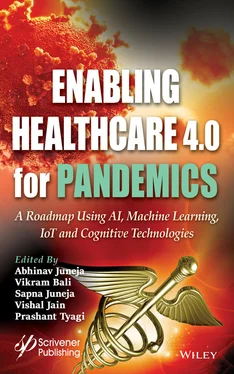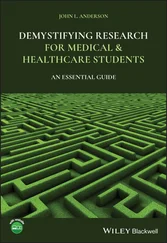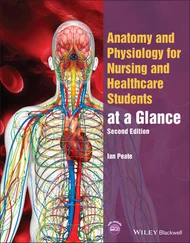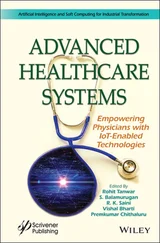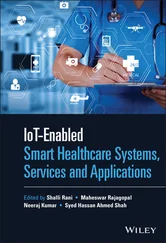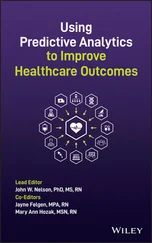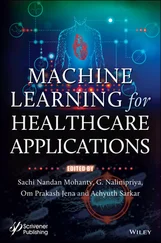6 Better Prediction Technology—These systems can predict any upcoming disaster like flood etc. with the help of Machine Learning and Deep Learning approach. This feature helps the governments to timely make a plan for the calamity and save the millions of lives and money [41].
Here are some drawbacks of using AI systems:
1 Restrict the manpower—AI will replace the manpower and degrade the job market leading to the huge unemployability in various sectors like production, farming and other industries where manual work can be replaced by the robots.
2 Lack of thinking power—AI driven systems are unable to decide by themselves if no data is being provided to them. They are only machines that are being run by the thinking process of human being. So if immediate decision is to be made in crucial situation without feeding the system with proper data set, the system won’t be able to reach to conclusion.
It is expected that the usage of artificial intelligence will shoot up in the post COVID world. AI has the capability of solving the problems and can perform decision making better than human beings. Various kinds of Artificial Intelligence enabled tools are also available in the market which perform analysis on a huge amount of data in order to understand the pattern about that data, for accurate decision making and for analyzing voice and image. Artificial Intelligent systems can also grasp new things continually. These features will be much useful as organizations will face and adjust with the new system developed due to this current crisis.
1. Allam, Z., Dey, G., Jones, D.S., Artificial Intelligence (AI) Provided Early Detection of the Coronavirus (COVID-19) in China and Will Influence Future Urban Health Policy Internationally. AI , 1, 2, 156–165, 2020.
2. Mohanty, S., Harun Ai Rashid, M., Mridul, M., Mohanty, C., Swayamsiddha, S., Application of Artificial Intelligence in COVID-19 drug repurposing. Diabetes Metab. Syndr ., 14, 5, 1027–1031, 2020.
3. Alimadadi, A., Aryal, S., Manandhar, I., Munroe, P.B., Joe, B., Cheng, X., Artificial intelligence and machine learning to fight COVID-19. Physiol. Genomics , 52, 4, 200–202, 2020..
4. Binti Hamzah, F.A. et al ., CoronaTracker: World-wide COVID-19 outbreak data analysis and prediction. Bull. World Health Organ ., Submitted, March 2020.
5. Mei, X. et al ., Artificial intelligence-enabled rapid diagnosis of patients with COVID-19. Nat. Med ., 2020, https://pubmed.ncbi.nlm.nih.gov/32427924.
6. Shinde, G.R., Kalamkar, A.B., Mahalle, P.N., Dey, N., Chaki, J., Hassanien, A.E., Forecasting Models for Coronavirus Disease (COVID-19): A Survey of the State-of-the-Art. SN Comput. Sci ., 1, 4, 1–15, 2020.
7. Ashraf Uddin, M., Shafiur Rahman, M., Anwar Hussen Wadud, M., Akhter, A., Akter, O., I. Commerce Security Lab, A Study on Epidemiological Characteristics and ML-Based Detection of novel COVID-19 Efficient Data Mining Approach View project Ensure Patient Privacy Given Internet of Things Data Transmitted from Wearable Sensors View project A Study on Epidemiological , March, 2020.
8. Elaziz, M.A., Hosny, K.M., Salah, A., Darwish, M.M., Lu, S., Sahlol, A.T., New machine learning method for image-based diagnosis of COVID-19. PLoS One , 15, 6, e0235187, 2020.
9. Luengo-Oroz, M. et al ., Artificial intelligence cooperation to support the global response to COVID-19. Nat. Mach. Intell ., 2, 6, 295–297, 2020.
10. Abaker, I. et al ., A Machine Learning Solution Framework for Combatting COVID-19 in Smart Cities from Multiple Dimensions. Medrxiv , 2020, https://doi.org/10.1101/2020.05.18.20105577.
11. Scott, I.A., The Medical Journal of Australia—Pre-print—19 June 2020 Can AI help in the fight against COVID-19? Med. J. Aust.—Pre-print , June, 19 2020.
12. Iwendi, C., Bashir, A.K., Peshkar, A., Sujatha, R., COVID-19 Patient Health Prediction Using Boosted Random Forest Algorithm. 8, July, 1–9, 2020.
13. Alom, Z., Rahman, M.M.S., Nasrin, M.S., Taha, T.M., Asari, V.K., 2020.
14. Naudé, W., Artificial Intelligence against COVID-19: An Early Review , pp. 2019–2020, Towar. Data Sci., March 2020, [Online]. Available: https://towardsdatascience.com/artificial-intelligence-against-covid-19-an-early-review-92a8360edaba.
15. Whitelaw, S., Mamas, M.A., Topol, E., Van Spall, H.G.C., Applications of digital technology in COVID-19 pandemic planning and response. Lancet Digit. Health , 2, 8, e435–e440, 2020.
16. Ahmed, S. and Khan, R.H., Blockchain and Industry 4.0. Blockchain Data Anal ., 28, January, 1–22, 2020.
17. Kumar, A., Gupta, P.K., Srivastava, A., A review of modern technologies for tackling COVID-19 pandemic. Diabetes Metab. Syndr. Clin. Res. Rev ., 14, 4, 569–573, 2020.
18. Javaid, M., Haleem, A., Vaishya, R., Bahl, S., Suman, R., Vaish, A., Industry 4.0 technologies and their applications in fighting COVID-19 pandemic. Diabetes Metab. Syndr. Clin. Res. Rev ., 14, 4, 419–422, 2020.
19. Zuo, S., Khosa, K., Ahmad, Z., Almaspoor, Z., Comparison of COVID-19 Pandemic Dynamics in Asian Countries with Statistical Modeling. Comput. Math. Methods Med ., 2020, 4296806, 2020.
20. Zhu, G. et al ., Learning from Large-Scale Wearable Device Data for Predicting Epidemics Trend of COVID-19. Discrete Dyn. Nat. Soc , 2020, Cdc, 2020.
21. Dahiwade, D., Patle, G., Meshram, E., Designing disease prediction model using machine learning approach. Proc. 3rd Int. Conf. Comput. Methodol. Commun. ICCMC 2019 , Iccmc, pp. 1211–1215, 2019.
22. Vaishya, R., Javaid, M., Khan, I.H., Haleem, A., Artificial Intelligence (AI) applications for COVID-19 pandemic. Diabetes Metab. Syndr. Clin. Res. Rev ., 14, 4, 337–339, 2020.
23. Donthu, N. and Gustafsson, A., Effects of COVID-19 on business and research. J. Bus. Res ., 117, June, 284–289, 2020.
24. Punn, N.S., Sonbhadra, S.K., Agarwal, S., Monitoring COVID-19 social distancing with person detection and tracking via fine-tuned YOLO v3 and Deepsort techniques , pp. 1–10, 1927.
25. Shirai, Y., Artificial Intelligence for Industrial Application in Japan. IFAC Proc. Vol ., 16, 20, 15–24, 1983.
26. Uchmeister, B., Alcic, P., Jstersek, O., Artificial Intelligence in Manufacturing Companies and Broader: An Overview. 81–98, 2019.
27. Ćosić, K., Popović, S., Šarlija, M., Kesedžić, I., Impact of human disasters and COVID-19 pandemic on mental health: Potential of digital psychiatry. Psychiatr. Danub ., 32, 1, 25–31, 2020.
28. Rajkumar, R.P., COVID-19 and mental health: A review of the existing literature. Asian J. Psychiatr ., 52, 102066, March 2020.
29. Mahase, E., COVID-19: Mental health consequences of pandemic need urgent research, paper advises. BMJ , 369, April, m1515, 2020.
30. Hamouche, S., COVID-19 and employees’ mental health: Stressors, moderators and agenda for organizational actions. Emerald Open Res ., 2, 15, 2020.
31. McCall, B., COVID-19 and artificial intelligence: Protecting healthcare workers and curbing the spread. Lancet Digit. Health , 2, 4, e166–e167, 2020.
32. Bøgehøj, L., Artificial Intelligence vs. Human Intelligence Man vs. Machine Lucas Kromann Bøgehøj Nielsen , pp. 1–20, December 2016.
33. Signorelli, C.M., Can computers become conscious and overcome humans? Front. Robot. AI , 5, OCT, 2018.
34. Chawla, P., Juneja, A., Juneja, S., Anand, R., Artificial intelligent systems in smart medical healthcare: Current trends. Int. J. Adv. Sci. Technol ., 29, 10 Special Issue, 1476–1484, 2020.
Читать дальше
